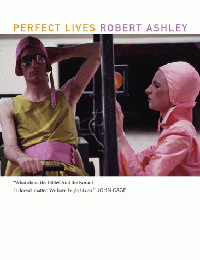Matt Mullins: Interview
For example, Matt Mullins and Three Ways of the Saw (Atticus Books). The “jagged” school. Certainly Eugene Martin (this book amazing, BTW). Sometimes XTX, Mary Miller, sometimes KGM. Certainly Jamie Iredell. A Hubert Shelby Jr./Iceberg Slim/Patti Smith continuum. Lipstick on the edge of a knife, balls clanking. Thrown/thrown down bottle of flungward. Slash. Krash. You wake up to vomit and your breath smells like burning tires, wonder, jamboree and regret.
Matt Mullins lives in a three-room apartment in a quiet business section of downtown Indiana. His apartment, located in a fifties-futuristic building in sight of four pawn shops and a hat store (That’s not really a hat store, Matt told me), is comfortably unimposing, though it does testify to his days as a traveling musician: souvenirs from Kalamazoo, Mexico, the Eastern Shore, the steppes of Kansas; a bookcase lined with personally inscribed records by Kiri Te Kanawa, DMX, Matt Salesses, Ginsberg (spoken word), Dee Dee Ramone; an entryway in which vintage amplifiers and various guitar cases are stacked shoulder high, as if headlining festival tours of indefinite length were perpetually in the offing.
Our first meeting took place in the summer of 2011. I arrived at his door in the early afternoon, but it was not his door, it was a small bar. There was an elderly woman behind the bar who looked exactly like a cross between a nocturnal monkey and Anthony Perkins. I had a shot of vodka and a very cold beer then asked, “Does Matt Mullins live around here?”
Night-monkey Perkins nodded to the ceiling. “Upstairs.”
I found Matt Mullins newly awakened, his thick brown hair tousled and pale blue eyes slightly bleary; he was obviously surprised that anyone would come to call at that hour of the day. As he finished his breakfast (a Pop-Tart and a grapefruit) and lighted up his first cigarette, his thin, somewhat wiry frame relaxed noticeably. He became increasingly jovial.
“There’s a bar below this apartment, can you believe that?”
“There is?” I said.
“Yes. Let’s go down and have a look.”
We never did get to the interview that day. But there were other days.
So Why Have You Not Seen “Hail the New Puritan”?
When I was a Master’s student at Illinois State University, I helped start and run a film club. We specialized in more obscure cinema. And one film I always wanted to show was Hail the New Puritan (1985–6), a fictionalized documentary by Charles Atlas about the British dancer and choreographer Michael Clark. It’s punk ballet!
The only problem was, I couldn’t find a copy of the film…
ToBS R2: ‘lyric essays’ vs. middle age white male self published sci fi novel pt 1 of 4

[matchup #47 in Tournament of Bookshit]
Thompa peered into the tinted windows of Captain Mnooble’s hovercraft, which hummed in the hovercraft hovering-lot, just outside the Sunfleet Academy. His heart raced and he could feel his green blood pulse quicker through his four aortas. Was the Captain still inside, staring back at Thompa, wondering if he was good and blinka enough to succeed him as leader of The Walkers?
*
In more shallow waters, sea cucumbers can form dense populations. The strawberry sea cucumber (Squamocnus brevidentis) of New Zealand lives on rocky walls around the southern coast of the South Island where populations sometimes reach densities of 1,000 animals per square metre. For this reason, one such area in Fiordland is simply called the strawberry fields. READ MORE >
ToBS R2: trolling for spelling errors in blog posts vs Sewage Treatment Technologies

[matchup #46 in Tournament of Bookshit]
Coming off their tedious win over those posting constant facebook photos, those Trolling for spelling errors in blog posts were feeling self-important & in the zone going into their game against Sewage Treatment Technologies. Little did Trolling for spelling errors in blog posts know, Sewage Treatment Technologies had a secret weapon they had not revealed in their win against The Pulitzer Prize, in the form of the lanky Roman center, Chiara Barzini. She quoted a passage from her forthcoming book:«If you attack, make sure you say things that really creep under the skin. A threat that always scares Romans off is: “Your sewage goes into pipes laid in 735 B.C. You are shitting into the past.”» And then she preceded to divulge the intricate inner-workings of Rome’s sewage system. Trolling for spelling errors in blog posts were thrown into confusion—not only was this sequence of words unseen previously in any blog post, but by self-revealing such vulnerabilities in the Roman sewage system, Sewage Treatment Technologies took away the sense of discovery from Trolling for spelling errors in blog posts, rendering them mute. Taking a cue from the movie Brazil, the all-purpose guard-forward Harry Tuttle (played by Robert Deniro) rerouted the online sewage pipes to flood all blog posts, leaving Trolling for spelling errors in blog posts to drown in their own shit. READ MORE >
Finding, stalking, and interviewing writers who haven’t published in a while: Dustin Long
Seems like some authors just disappear. They publish a great book and then nothing for five years until I’m starring at my bookshelf and come across their book and think “Why didn’t so and so publish another book?” This happened recently when I found ICELANDER by Dustin Long in a stack on my bedroom floor. I love this book. It’s weird and whimsical and there’s puzzles and snow and murder. I read it twice when it came out in 2007. But what happened to Dustin Long? My prediction was he was either in grad school or got an office job. To find out what happened I stalked Dustin on Facebook and asked the following questions.

I’m a huge fan of Icelander. It’s one of my favorite books. I remember reading it and kind of feeling my own writing open up to new things – maybe it was the playfulness, the energy in Icelander, that broke things open. I’d like to think so. Then last week I was thinking, what happened to Dustin Long? Where is a new book? So, what’s up? Everything okay? READ MORE >
Robert Ashley — Perfect Lives
 Perfect Lives
Perfect Lives
by Robert Ashley
Dalkey Archive Press, 2011 (Reprint)
240 pages / $13.95 Buy from Amazon, Dalkey Archive
Premiering on television in 1984 and first published in book form in 1991, Perfect Lives is several texts at once: a comic opera libretto, a novel about a temporary bank heist, a blurb-billed epic poem ranging through small town Midwestern vernacular and Eastern metaphysics, and a kind of textual final resting place for the titular performance in the form of notes, a preface, a synopsis, some notation from the score, and an edited conversation with writer, composer and director Ashley during which he explains the genesis and outcome of the project. (Ashley: “I had this practice: I’d go into a room, close the door, and start singing.”) It’s a good thing that the book is several texts, because while it’s a success as an engaging epic (experimental) poem, it would be a stretch to call it a novel and as a libretto it leaves you having missed out on the three-hour television program that it became with no idea of what it sounded like unless you’re familiar with Ashley’s work and no idea what it looked like except for a still of the production on the cover of the book and a frontispiece featuring Ashley himself playing narrator. Ultimately the loss of context doesn’t make the text suffer because as a set of eight experimental poems obliquely describing a bank heist and an elopement among more metaphysical things it wins at being an engrossing read and at capturing small town Midwestern vernacular and widescreen philosophy in very crisp but entertainingly malformed ways.
February 17th, 2012 / 1:00 am
Thursday Reading
Cathy Day is doing a survey about the place of the novel in MFA programs. Both students and faculty are encouraged to participate. You can do so here.
The Millions has assembled a nice compendium of literary Tumblrs. Also at The Millions, Nick Ripatrazone, writes about compensation and literary magazines.
Starting here, The Believer hosts a three-part conversation between Vanessa Veselka and Lidia Yuknavitch.Part 2 is here and Part 3 is here.
There’s been some conversation across different magazines and websites about fact checking, truth, and creative nonfiction. The New Yorker chimes in.
Sugar of Dear Sugar renown has revealed her identity–it’s author of Torch and Wild (forthcoming), Cheryl Strayed. She talks to Book Bench.
Scientists are uprising! Against Elsevier! Pocket protectors unite!
Michael Chabon co-wrote the screenplay for John Carter. This article looks at money and writing and Chabon and such. Ayelet Waldman responded on Twitter and that was awesome.
Here’s a little something on the history of monsters.
Publishing via Facebook….
I don’t like pennies.



